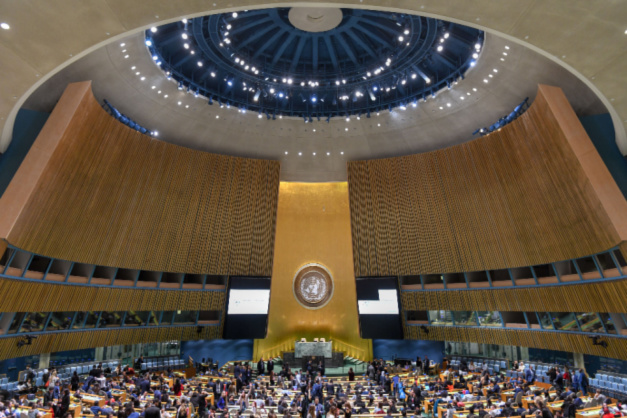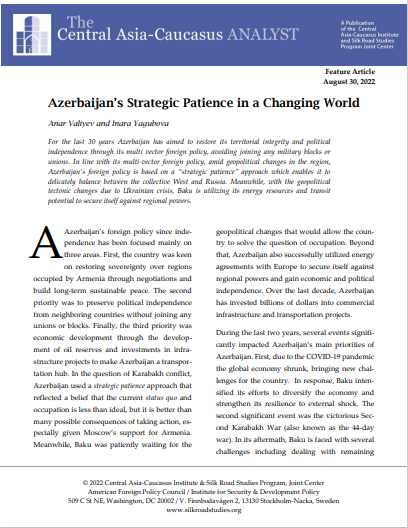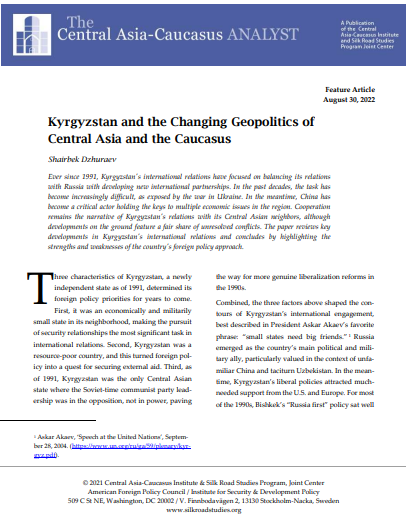Azerbaijan’s Strategic Patience in a Changing World
By Anar Valiyev and Inara Yagubova
August 30, 2022
For the last 30 years Azerbaijan has aimed to restore its territorial integrity and political independence through its multi vector foreign policy, avoiding joining any military blocks or unions. In line with its multi-vector foreign policy, amid geopolitical changes in the region, Azerbaijan’s foreign policy is based on a “strategic patience” approach which enables it to delicately balance between the collective West and Russia. Meanwhile, with the geopolitical tectonic changes due to Ukrainian crisis, Baku is utilizing its energy resources and transit potential to secure itself against regional powers.
Kyrgyzstan and the Changing Geopolitics of Central Asia and the Caucasus
By Shairbek Dzhuraev
August 30, 2022
Ever since 1991, Kyrgyzstan's international relations have focused on balancing its relation with Russia with developing new international partnerships. In the past decades, the task has become increasingly difficult, as exposed by the war in Ukraine. In the meantime, China has become a critical actor holding the keys to multiple economic issues in the region. Cooperation remains the narrative of Kyrgyzstan's relations with its Central Asian neighbors, although developments on the ground feature a fair share of unresolved conflicts. The paper reviews key developments in Kyrgyzstan's international relations and concludes by highlighting the strengths and weaknesses of the country's foreign policy approach.
Russia-Kazakhstan dynamic in the context of European energy and economic security
By Mamuka Tsereteli
August 11, 2022
Kazakhstan, and Central Asia in general, needs a long-term energy and commodity export strategy. Economic and energy security for the landlocked countries requires diversification of the transportation options for export and import. Europe will need every extra barrel of oil it can get, and Kazakhstan needs reliable markets, so uninterrupted access to resources and markets through trusted connectivity with the likeminded countries should always be the priority in all times, good and bad.
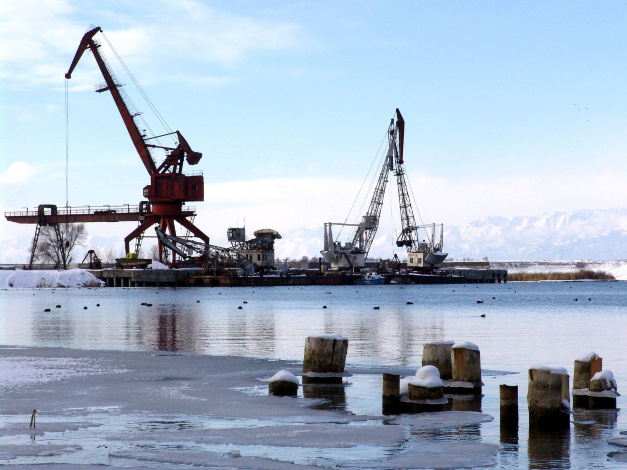
So-called parliamentary elections in occupied Abkhazia
By Tomáš Baranec and Tengiz Gasviani
July 12, 2022
The second round of Abkhazia’s de facto parliamentary elections took place on March 26. Although the Abkhaz parliament and the political parties enjoy little influence in the local power vertical, this year’s elections could significantly affect the further development of the political situation in the region. A likely “constitutional majority” of pro-president MPs in the parliament does not only complete the concentration of power in the hands of the de facto president Aslan Bzhania, but also allows for constitutional changes. At the same time, it can make Abkhazia more vulnerable to pressure from Russia.
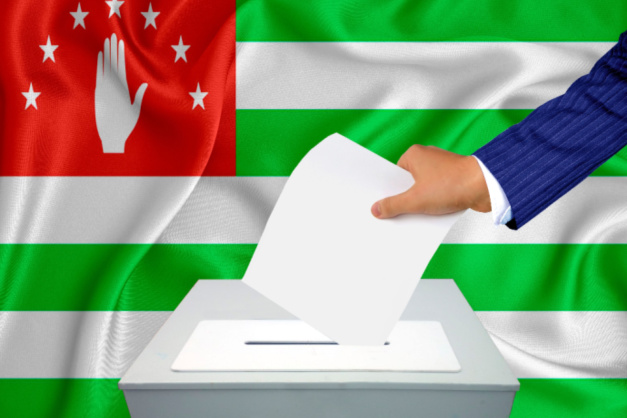
Uzbekistan Between Ukraine and Russia: The Curse of Positioning
By Farkhod Tolipov
May 31, 2022
Russia’s war in Ukraine has become an existential geopolitical challenge for all former Soviet republics. Uzbekistan’s formulation and expression of a position on the war has been difficult in an ethical and political sense. Positioning on this matter is also a serious test for the strategic partnership and unity of Central Asian states. At the UNGA, Uzbekistan did not vote on the resolution blaming Russia for aggression against Ukraine. However, it voted against the exclusion of Russia from the UN Human Rights Committee. Uzbekistan’s MFA later brought some clarity to Tashkent’s position, which could potentially irritate Moscow. The curse of positioning reflects the enduring and perplexing geopolitical status-quo in Central Asia.
